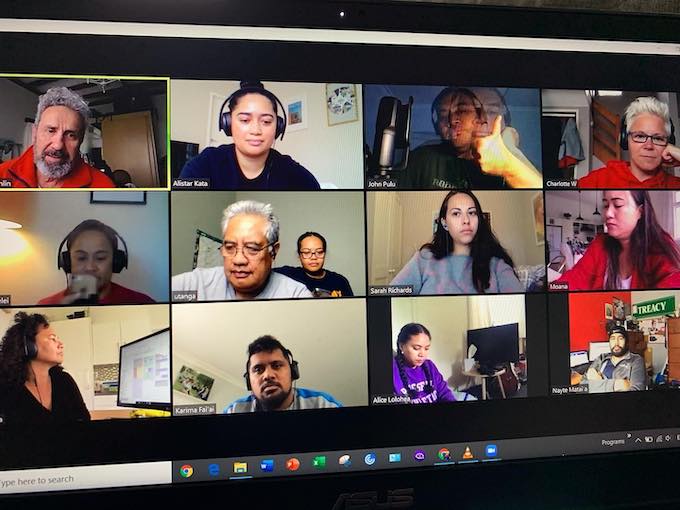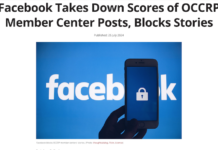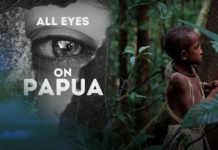
By Sri Krishnamurthi of Pacific Media Watch
Pacific governments across the region have put side their differences with media and are working alongside them in these difficult times, say New Zealand journalists covering Moana.
Most journalists who cover the Pacific come Pasifika backgrounds and have been pleasantly surprised by the change in attitude of governments.
“The Pacific is infamous for dodgy phone lines or elusive newsmakers but in this time of heightened alerts and information, for the most part countries/governments/authorities have been quite forthcoming about updating the Covid-19 situation,” says Koro Vaka’uta, a senior journalist with RNZ Pacific.
READ MORE: Al Jazeera coronavirus updates – Italy reports 812 deaths in one day
- Tahiti Covid-19 cases now up to 36
- Pacific Conference of Churches calls for ‘social distancing’
- Pacific Media Centre coronavirus updates
- Global coronavirus watch
“Funnily enough I haven’t noticed any higher degree of difficulty when it comes to contacting people than the norm.”
He is not alone in that assessment of regional governments being more co-operative with media.
Television New Zealand’s pacific correspondent Barbara Dreaver, who has had her fair share of differences with Pacific governments over the years, says she has noticed a change in demeanour.
“I’ve found that governments have really stepped up with issuing regular media releases – sometimes Samoa issue several a day,” she says.
‘Huge change’
“It’s a huge change from normal media avoidance stand that many Pacific governments take.
“I believe it’s because there is a lot of inaccurate information and rumour driven by fear circulating on social media and governments are keen on getting as much accurate information out as quickly as possible to the public who they need to convince in some cases to adhere to measures put in place.”

TVNZ has partnered with Pasifika TV to deliver weekday daily Covid-19 Pacific Updates for the region.
“That is playing out on television stations across the Pacific, Facebook and One News Now Online. It is fortunate that Pasifika TV launched its free service to the Pacific last year as that has been a powerful tool in delivering to the region as a New Zealand government initiative,” she says.
RNZ Pacific manager Moera Tuilaepa-Taylor could not be more complimentary about her staff and how they have handled the pandemic.
“My team have been incredible – while under pressure they have come up with new ways to put content online and on air,” she says.
“Their biggest worry during the lead up to the lockdown was that we wouldn’t be able to deliver news bulletins or update our website from off-site.
Pasifika backgrounds
“Many RNZP staff members, including myself, are from Pasifika backgrounds. We know how important it is to get accurate information to our people.”
She says most of her staff are working remotely from home.
“As far as RNZ Pacific goes, currently all our staff are working offsite, for their own safety,” Tuilaepa-Taylor says.
“However, this has not affected our ability to compile bulletins. Our staff are in constant contact with each other via email and other digital methods. Staff members are using a combination of phones and laptops to maintain contact, and record interviews.”
Vaka’uta says the strength of RNZ’s contacts through the Pacific has stood the organisation in good stead.
“We are fortunate to have a strong network of existing correspondents across the region who have provided updates throughout the rise of the Covid-19 pandemic. This means it hasn’t been an issue trying to get other voices on the ground,” he says.
“We are predominately using email and phone to keep in touch with our correspondents who send articles and accompanying images and also provide audio commentary of the situation on the ground at times.
Team spirits high
“The team’s spirits are relatively high, given the circumstances.
“Perhaps it is the novelty of the situation, but everyone seems to be highly focussed at disseminating as much accurate information as possible no matter the technical challenges.”
For Dreaver, it has brought new challenges of how she does her work, she relies mainly on social media because it is widely used in the Pacific.
However, she admits to being worried about exposure to Covid-19.
”As a reporter working on the ground in a Covid-19 situation we have strict guidelines and instructions to keep us all as safe as possible,” she says.
“We have divided into two teams and we cannot ever mix with anyone in the opposite team. We have masks, gloves, hand sanitiser and when we go to interview people, we set up a microphone outside their house and then move several metres back when we do the interview.
“We do interviews by Skype, Facebook messenger etc. We rely on footage people shoot on their phones.
Staying safe
“We do everything possible to stay safe we are extremely careful, but I would be lying if I said I wasn’t concerned about getting infected.
“But I have a sometimes overwhelming responsibility to my Pasifika community who sometimes can be invisible in New Zealand to ensure their stories are being told that they have a voice in these grim times.”
Meanwhile, RNZ has had to trim its offerings to the Pacific but the good news was its shortwave service was still operational.
“The technical operations of the shortwave service are still maintained by a couple of key staff,” RNZ’s Pacific manager Tuilaepa-Taylor says.
“The lockdown has made it necessary to scale back some of our operations. We have temporarily ceased production on our Dateline Pacific, Tangata O Te Moana, Dateline Nights and the World in Sport programmes. We will not resume producing these programmes, at least until the lockdown has ended,” she says.
“Essentially, our content continues to go out on air and online.”
Dreaver says she finds Facebook works best for the Pacific region.
Social media best way
“As a reporter, social media, especially Facebook, is the best way of getting stories and information out to the pacific and helping people connect with friends and family,” she says.
“But Facebook can also be a hindrance to reporters because of the hugely inaccurate information floating around. As countries go into lockdown everyone becomes a keyboard warrior with opinion and self-belief, they are right and reporters who are reporting facts are wrong.
“It’s never been this crucial to be absolutely factual and not buy in to fear or unsubstantiated rumour.
“I have found Facebook useful for connecting with grassroots and personal stories, but great care needs to be taken.”
For John Pulu of Tagata Pasifika he has discovered the joys of using Zoom.
“We are doing everything via Zoom. Star [Kata] has been doing a few interviews on Zoom and recording them and sending them to our editor.
“For me, it’s just making sure the other person has the correct technology, phone with camera etc. I really like Zoom because you can record. Once you are connected you are good to go.”












































